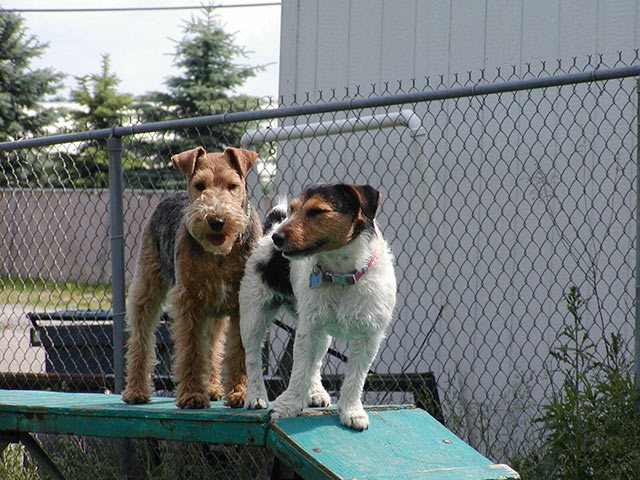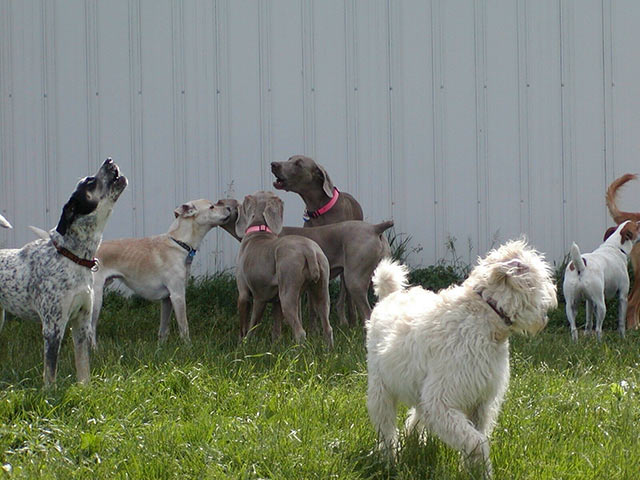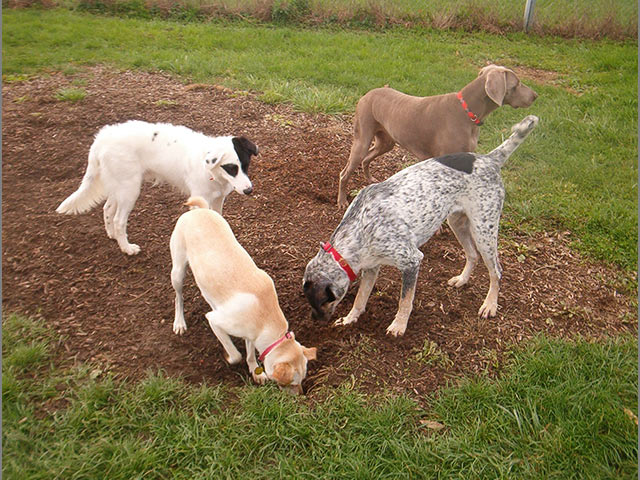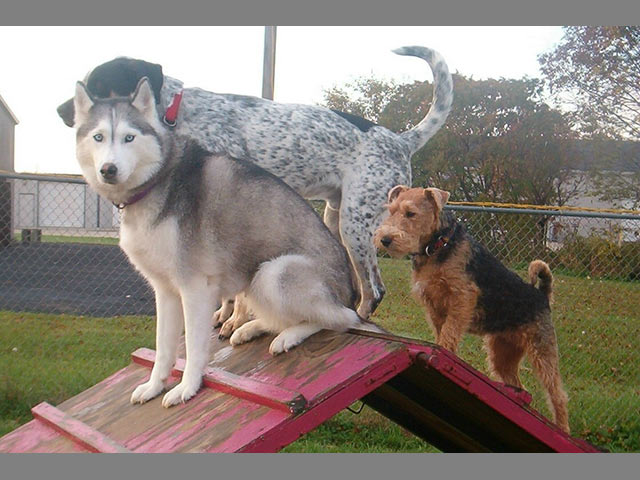Different Doggy Daycare





What is your advice for someone interested in getting started in showing?
The most important thing is to walk in, go to shows, ask people to honestly evaluate your dogs. You might have a beautiful dog, but if you go to shows and you're not winning, and people tell you there are issues, you need to listen to that. Also, find someone who is willing to go over what they like and don't like about their own dogs.
Are you saying that newcomers should ask experienced breeders to share issues they might have with their own dogs?
I'm always quick to talk to people who are interested in Greyhounds, and I'll go over every aspect of my own dogs. That's because I know them best, and I won't insult anyone that way. It doesn't hurt me to tell people what's right and wrong about my dogs, so they can learn. People who are part of dog show life are willing to let you go over their dogs. Of course, they need to know you're serious.
How do you show that you are serious? And how do you get opinions about dogs in the ring, especially when it's a breed you are interested in but unfamiliar with?
There are many ways. First, join a local club. Volunteer to do some jobs, even small ones. If you're helping organize the trophies for a show, you might get a chance to speak with that lady who has 45 years of experience, but who is difficult to start a conversation with! At the show, let's say I'm interested in Portuguese Water Dogs. I'll just sit at ringside with someone of that breed and say something like, "I want to learn more about these dogs. That one looks like a pretty mover. Can you tell me what you're seeing?"
That sounds simple. But how can you tell if people are being honest and straightforward, not just negative?
That comes from talking to many people, and learning to rely on gut reactions. After a while, you get a feel for the people who like to speak positively. You try to stay away from those who simply criticize rather than help point things out to you.
Ten years ago, you wanted to create a business based on your life in the fancy. What did you come up with?
There are many aspects to the dog world, so many things you can do, and it's endless what you could develop as a business – beyond breeding. I decided to open a doggy daycare center, called A Place for Paws.
How important were your connections in the fancy while developing A Place for Paws?
My fancier connections definitely helped. The all-breed club was very important at the local level. That helped me meet people who I could work with as I developed a business plan, people who could give me new ideas.
With all your connections and experiences, it sounds like you have a lot to offer. You could give clients informed links to the show world.
There's a lot more to this than just having people drop their dogs off for the day. I teach conformation classes for people starting out in showing. I run Canine Good Citizenship testing and we publish a booklet of testimonials from people who went through CGC training. I offer handling classes. I get every student to walk into the ring handling their own dog. The joy of showing is being in the ring. When people stand outside the ring and watch others handle their dogs, they may not understand the breed as well.
That helps clients interested in showing. What about people who want to be breeders?
I often speak to people looking to breed their first litter. I can help them get connected with a mentor. The fact that I'm also a trainer helps. When people breed their dogs, they can come to me for behavioral consultations if there's trouble with the puppies.
You often see new dog breeds at A Place for Paws. Is this a learning opportunity? How do you maintain a teacher role, even when students show up with breeds you are unfamiliar with?
People will come to A Place for Paws with a dog I've never seen or heard of before. I'll study up. I'll go to ringside and talk to people about the breed. I have friends who are judges, and I'll ask them about the breed. I'll ask what's good, what are the problems? I take my notes back to A Place for Paws. That way, my students get ideas they would never have had access to, because they might not know who to approach at shows or how to ask questions.
This explains why, even after 45 years, you are still always looking for opportunities to meet people and ask questions, whether or not it has to do with Greyhounds.
I love that the AKC accepts new breeds every few months. That means I get to learn something new all the time. My current interest is Pyrenean Shepherds, which were just accepted in the miscellaneous group. Three people came to A Place for Paws with these dogs. I went to a specialty and learned about Pyrenean Shepherds, got a good look at them and found out how AKC judges view them. It's so interesting, and makes my work lots of fun. When I first started A Place for Paws, I had no idea it would go in this direction. I thought I'd just run a center and offer a bit of training to help people get themselves and their dogs off the couch!
